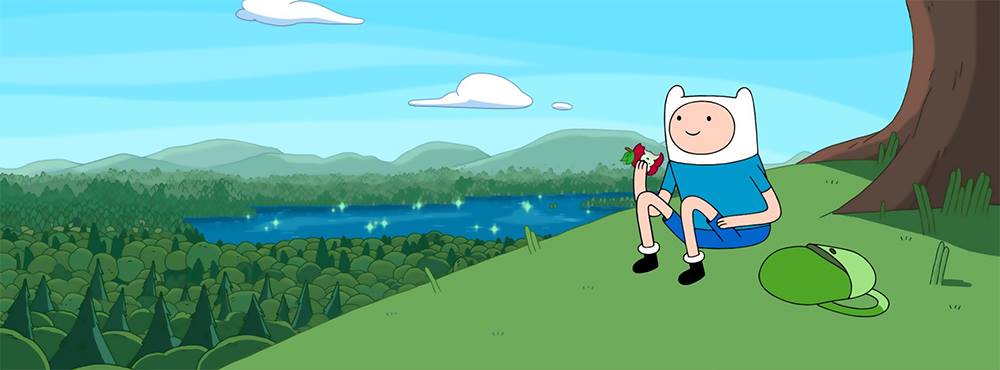
Gaming Editor Louis Wright discusses Finn’s character development and journey into adulthood
Adventure Time is a series that has remained in the pop culture ecosystem since its inception and original release in 2010. The animated series, created by Pendleton Ward, follows the life of Finn the Human (Jeremy Shada) and his adopted brother Jake the Dog (John DiMaggio) as they adventure around the Land of Ooo, meeting zany characters and falling into wacky hijinks. Despite its simple premise the show has, through its entire lifetime, seen universal acclaim from critics and fans for its originality and endless uniqueness. Although the show may be known more commonly for its more light-hearted and episodic nature, it is in actuality much more than that. Adventure Time is one of the greatest coming-of-age stories put to television.
“Adventure Time is one of the greatest coming-of-age stories put to television
Over the course of the series, Finn ages and matures from a 12-year-old to a 17-year-old. As far as animated series are concerned, this is incredibly uncommon with many shows preferring to keep their characters stagnant in their ages; therefore, Adventure Time has the unique advantage of being able to explore the woes and rewards that come from experiencing puberty and discovering oneself.
Finn, as a character, develops tremendously. Through his experiences in the world and his changing relationships with all of those around him, Finn moves away from the excitable child with a lust for adventure to someone more grounded and world weary, but still ever as ready to help those in need. This development makes Finn an extraordinary character in how he differs from the start of the series comparatively to the end. Finn, at the conclusion of Adventure Time is still very much the same Finn the audience was introduced to in the beginning, but the experiences that the audience has perceived him go through have warped that childlike perspective of the world.
There are key episodes in relation to this maturation. Holly Jolly Secrets teaches Finn that the world is not a binary of good and evil. Burning Low and Frost and Fire explore Finn’s relationship with love, especially love during a developmental point in his life. Escape From the Citadel and The Islands miniseries explore Finn’s origins and confront his perspective of himself. However, the standout episodes in regard to Finn’s development to adulthood are Breezy and The Hall of Egress.
Breezy sees Finn try to find a spark of romance in the midst of a deep depression to try and cure himself of it; the depression being symbolised by the wilting of a flower that is growing from Finn’s body. As such this episode is the point in the series where Finn transitions to an adult character, being (literally) deflowered at the end. However, while the flower is not physically seen on Finn past this episode, the deflowering is not the cure for Finn’s depression, rather it is just taking upon a different form.
“the biggest shift from his more childlike perspective at the beginning of the series and his more jaded, but still optimistic, view at the end
The Hall of Egress therefore is the episode that sees the conclusion of this depression in a sense, giving Finn a new perspective on life. Spending seemingly months trapped in a time loop that robs him of his sight, Finn must come to a great personal discovery, leave behind his old self, and go through an egress in order to escape. Past this episode, Finn is a changed character, and is ultimately the episode that sees the biggest shift from his more childlike perspective at the beginning of the series and his more jaded, but still optimistic, view at the end.
This development to a mature perspective goes beyond Finn, as the show itself matures to accommodate this shift of its lead character. As the show begins tackling these more mature plotlines and themes, it moves away from its more episodic nature- overarching narratives are developed, necessitating episodes to be watched in order where before they could be watched at any point. The tone of the show shifts as well, the Land of Ooo is not as colourful as it was at the start, and though it maintains more light-hearted aspects these are transitioned more so towards a feeling of uneasy whimsy.
“the Land of Ooo is not as colourful as it was at the start
Adventure Time is a show about growing up. Through the course of the series every aspect of it matures and develops, effectively alongside its original target audience. The characters we follow grow and develop into more rounded individuals through their joyous moments and their suffering, and the show itself morphs in much the same way. There will likely never be another animated show like Adventure Time, what it conceptualises and how it does it are truly lightning in a bottle, and it will be remembered for its grace in handling these themes.

Comments